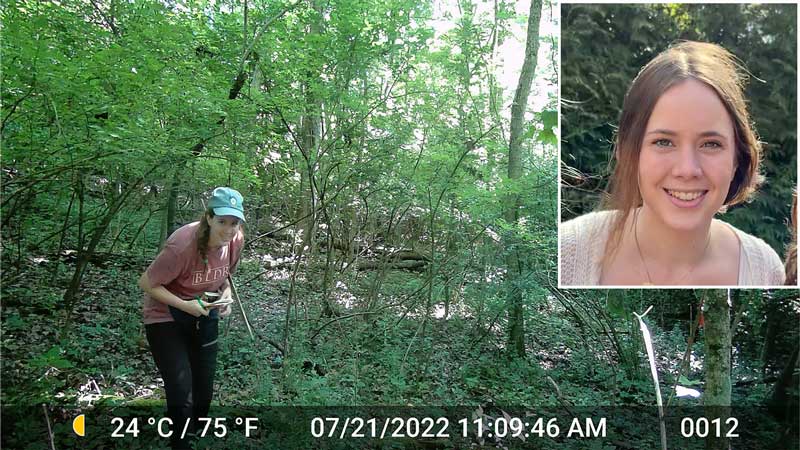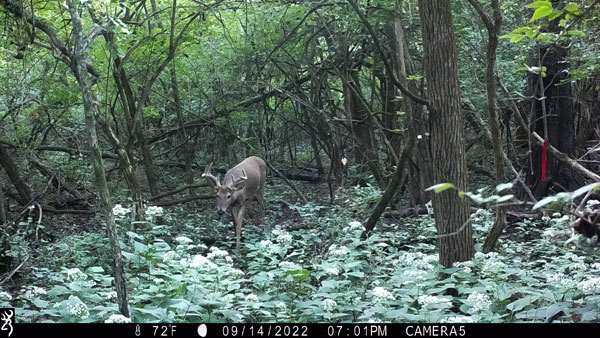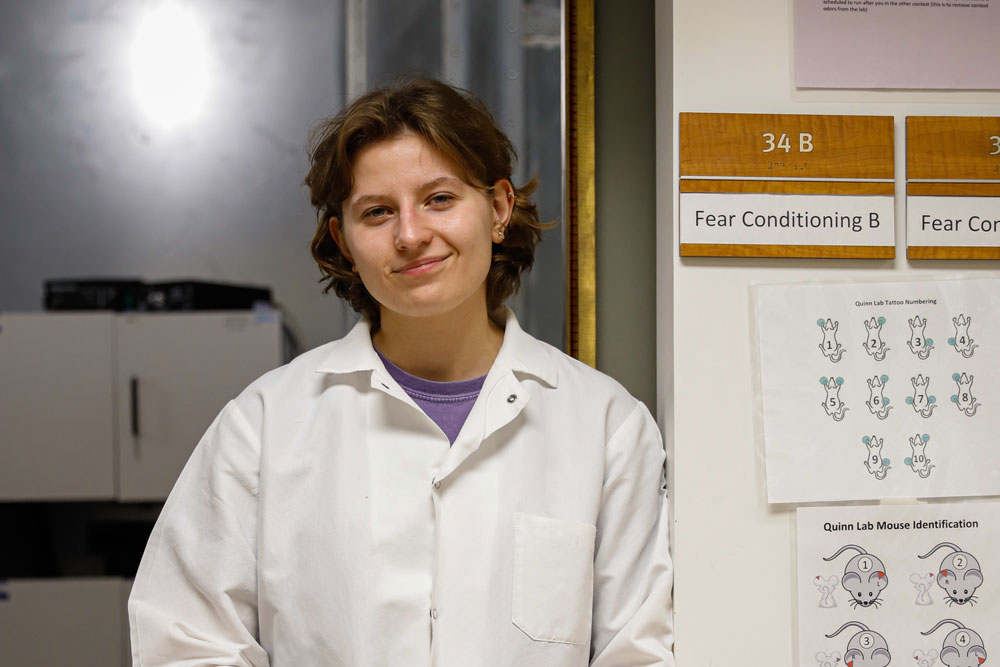Biology and Sustainability junior investigates effects of the overabundant deer population on local ecosystems
Elea Cooper ‘24 is working to analyze the severity of impact and what this could mean for Oxford in the future.

Biology and Sustainability junior investigates effects of the overabundant deer population on local ecosystems
In Oxford, many have noticed the amount of deer and how that number seems to only grow. With no natural predators in the area and plenty of available food, the species rapidly reproduces. This growth threatens the biodiversity of local forests.
Elea Cooper, a junior Biology major and Sustainability co-major in the combined bachelor’s-master’s program for Environmental Science, does data collection and analysis of deer populations and their impacts on tree seedlings. Through her research in six forested sites in the Miami University Natural Areas and Ecology Research Center, Cooper found that these overabundant deer populations are associated with very low densities of seedlings and saplings. She recognized that this indicates regeneration failure for local trees.
“Regeneration failure is where the seedlings in the forest are not going to be either dense enough, or maybe they’re the wrong type compared to the tree canopy,” Cooper said.

The canopy, which consists of the large trees in a given area, is currently made up of mostly oak, elm, and sugar maple trees. However, except for those of the white ash, very few seedlings remain, and due to invasive insects known as emerald ash borers, these trees have virtually no chance of survival.
“When the current canopy falls -- when they die -- there’s nothing coming up to replace them,” Cooper said. “So we really need to do something. Otherwise, there’s not going to be a forest here around Oxford in 50-80 years.”
While Cooper’s research focuses on collection and analysis of data, her work and that of others are influencing the Miami University Natural Areas committee in mitigation of this issue. Bow hunting in designated areas and times, for example, is now allowed between Nov. 15 and Feb. 5. This practice was previously not permitted. There is hope that this will alleviate some of the environmental strain caused by too many deer, an issue that has been recognized and monitored since 2010.
“Bow hunting was banned previously, so that’s part of why the deer population is so bad,” Cooper said. “I know hunting in general is sometimes considered a negative thing, but it’s actually so important.”
Cooper and students in the lab work under professor David Gorchov, professor of Biology. Last year, Cooper took a course with him and volunteered to take on a side project, which involved setting up and checking trail cameras. This evolved into her current research, in which she was invited to partake in the Undergraduate Summer Scholars program.
She, Gorchov, and other students work both independently and collaboratively in the different aspects of this research project.
“I’ve helped with their projects, and they’ve helped with mine,” Cooper said. “It’s cool because a lot of us are collecting different data, but that is relevant to each others’. It’s really interesting to intersect data.”
Cooper noted that while collaboration was a large part of this project, she’s learned a lot about independence. While Gorchov assisted her when setting up the research, when it came time to do it, Cooper said she was on her own.
“Self-direction is a big one for me, and that’s something I had a hard time with before this project,” she said. “You have to be able to decide what to do -- make your own choices and be confident about it.”
After she graduates in 2024, Cooper says she could see herself working in land management with national parks or the government. In addition to this work, she is also considering a field switch to genetics. In a few years, this project and her data will be used to evaluate the issue at that time and see how it has changed. These assessments are crucial in determining the future of Oxford’s forests.
